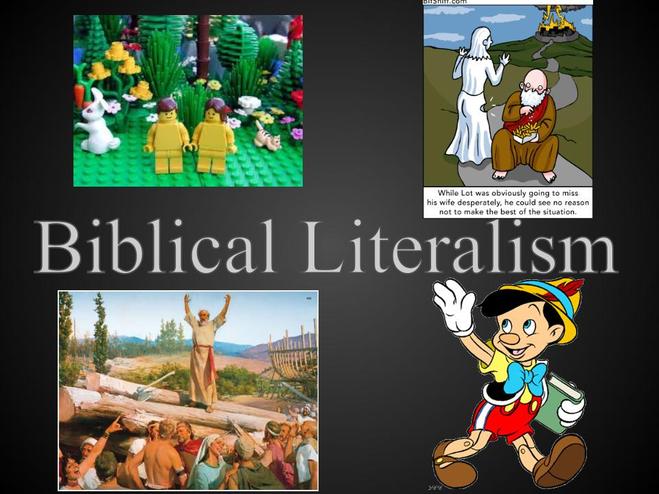
This post is going to be a very personal one as to where I stand now in my struggle for truth in reaching out toward the divine, I hope many of you readers can relate a bit and maybe we can learn from one another. Biblical literalism is pretty much exactly what it sounds like, can you read the Bible and take what it says as literal truth? This is something that over recent months and years I have really been trying to work through. If you have never questioned if scripture may not have historically happened my aim is not to plant seeds of doubt so please don't take that as my goal. Through reading biblical research, contemporary and historical religious teachers, scientific evidence and above all my personal spiritual and secular experiences my views have changed. I think this is a common personal evolution as we grow and learn we see the world differently, including the world of faith. This is NOT to say I value the biblical teachings any less, if anything I place higher value on them because like the parables of Jesus I am learning to apply many of these tales to my life. I think Desmond Tutu, the Nobel Peace Laureate and South African prophet of forgiveness, sums up this idea nicely:
"Reading the Bible can be a source of reflection and inspiration, as you listen for God's voice in your life. But you must watch how you read the Bible and apply it to today's world. The Bible is not something that came dropping from heaven, written by the hand of God. It was written by human beings, so it uses human idiom and is influenced by the context in which whatever story was written. People need to be very careful. Many tend to be literalists, people who believe in the verbal inerrancy of the Bible, who speak as if God dictated the Bible, when in fact God used human beings as they were, and they spoke only as they could speak at that time."
Once upon a time I took at face value that the majority of the stories in the Old and New Testament (as well as Book of Mormon for my LDS friends) absolutely historically happened. Now some stories really don't seem to hold literal water. Balaam and his talking donkey (link for family reenactment) comes to mind as one that really seems improbable no matter how much my own cat tries to communicate she just can't seem to find the words. The tower of Babel (link for a light hearted version) makes for an interesting story yet if the same measurement was given today by God, who never changes, wouldn't our huge sky scrapers dedicated to Mammon be in danger of his wrath...and I sure hope people have not explained 9/11 this way. What about Noah's Ark (Disney classic)? Did Noah really fit two of every kind of animal species on a boat? Would that even be possible today with our huge barges? I don't really see that happening. Are Adam and Eve supposed to literally have lived on this Earth listened to a snake and then brought about the fall (and life) of our entire race? More to the point with the creation story how long ago did they live? I know people that can more or less trace their genealogy back to our first parents. Paired with this is the idea of the "Young Earth Creationism" (link is to wiki) that the Earth, or at least humanity, has only been around 5-10,000 years based on Biblical evidence yet this contradicts all of what science tells us. Of course the Bible is rich with narrative that I could go on for days but I'll finish this portion with Jonah. He and his whale remind me of Pinnochio, both good tales but it really does not seem too likely that a prophet or a wooden boy and his cricket could live in any sea creature for an extended period time.
Check out some classic Bill Cosby on Noah and the Bible (o:
Please, this one is more of a controversial subject so I would love to hear your comments. If you think I'm a way off base heretic, or going through something similar yourself I want to hear. (o:
Next time: Jesus and Buddha

 RSS Feed
RSS Feed